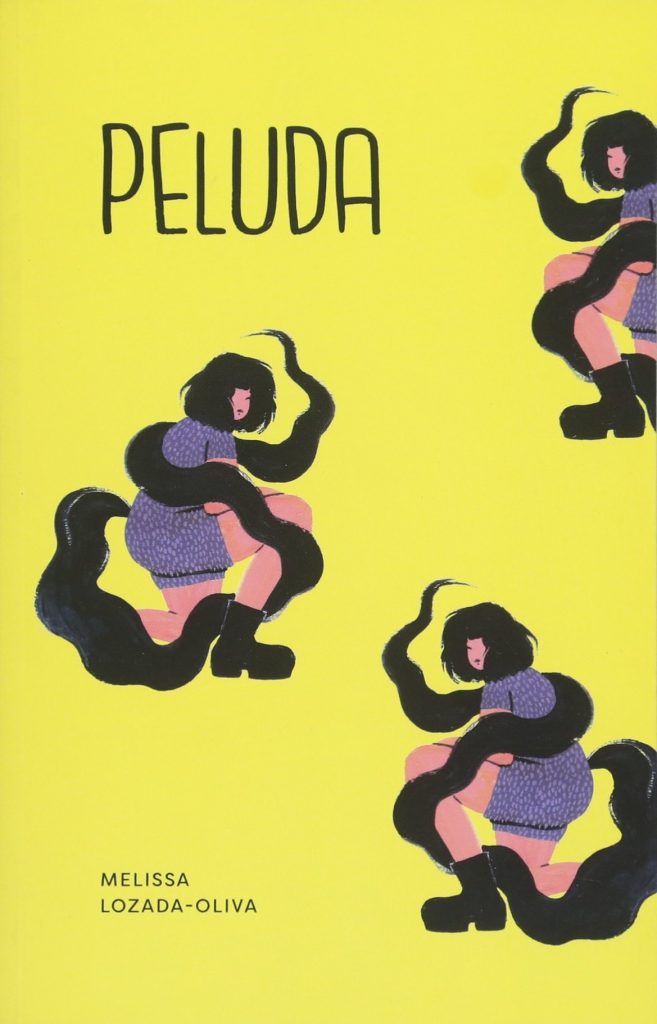Dreaming of You: A Journey Into Celebrity and What It Means to Disappear

Allison Armijo // Blog Writer
Have you ever brought your idol back from the dead? Have you ever wanted to?
Melissa Lozada-Oliva is a Guatemalan and Colombian American author. Winning the 2015 National Poetry Slam for her poem, “Like Totally Whatever,” Lozada-Oliva continues to explore themes of identity in her work. She is the author of peluda, a chapbook published in 2017 about Latina identity as it approaches hair, identity, and the feeling of wanting to belong.
Her most recent work, Dreaming of You, is a novel-in-verse about a young girl, named after herself as Melissa, bringing her idol, world-renowned Tejano popstar Selena back from the dead. As a novel-in-verse, the work features both poems and prose, beginning by introducing the audience to the “cast,” which includes Yolanda Saldivar (the president of Selena’s fan club and her murderer), Mami (Selena’s mother), Papi/Abraham Quintanilla (Selena’s father), Selena Quintanilla-Perez, Las Chismosas (the chorus), You (the reader, “as the consumer and the consumed”), and the author herself, Melissa Lozada-Oliva, who writes in her character description, “It’s been me, it’s always been me. The whole time.”
The story is divided into six parts, each section delineating the various repercussions of resurrecting Selena. From an underground celebrity dance party powered by Wi-Fi to a case of stolen identity, Lozada-Oliva tells the story of Selena as she lives again, watching herself—as Melissa—disappear in the process. In this way, the novel travels into the world of stardom as it appears to someone on the outside, interrogating questions of celebrity, identity, and what it means to disappear—especially when you involve the internet.
For Lozada-Oliva, the internet represents a ubiquitous platform to revitalize something once lost. Nothing is lost on the internet, nothing disappears. However, while the internet can be a place of preservation, it is also a constantly evolving space—something that attempts to move stagnation, otherwise known as death, into movement. In this way, Melissa imposes herself on Selena, revitalizing the Tejano popstar to celebrate her life, even if it means Melissa’s death.

Yolanda Saldivar, the president of Selena’s fan club and her murderer, is Lozada-Oliva’s attempt to reconcile the past, as she humanizes Yolanda through various passages from Yolanda’s point of view. Yolanda’s role in the story is described in the poem, “Yolanda Leaves a Note,” which describes the note Yolanda leaves for Melissa, before she disappears to try and find (resurrected) Selena. She writes, “You can’t immortalize everybody. / You can’t just bring people back to life. / I killed her, okay. / I killed her just to see myself better. / But what are you doing here, / with your eyes?” Yolanda forces Melissa to ask herself: How are you different from me? After all, resurrecting Selena only guarantees her eventual death. Yolanda asks Melissa: What makes you different from me? Both characters—Melissa and Yolanda—killed Selena. They both did it for love.
In this way, Lozada-Oliva writes about Selena just as much as her murderer, asking if acting in service of love is enough justification. Perhaps, this question is answered, as Melissa disappears throughout the story. However, maybe it’s the opposite. Could Melissa’s disappearance be a transition rather than a departure? A transition into a different type of preservation, one that forces her to confront her actions and see herself, if maybe for the first time?
Have you ever brought your idol back from the dead? Have you ever wanted to?
As Lozada-Oliva writes, she ironically approaches the idea of celebrity as a way to disappear, rather than become more visible. This paradox is the guiding force behind Melissa’s actions, as her attempts to humanize people, while well-intentioned, eventually go awry.
Upon reflection, there could be many takeaways from this novel. You can read it as a harbinger: “be careful what you wish for,” or you can see it as a way to walk in other peoples’ shoes, understand them as human beings instead of archetypes. It is interesting to consider these questions considering Lozada-Oliva’s own celebrity status, as she is a prominent young author and poet. Maybe she writes as a warning for the dangers of bringing back the dead. Or maybe, she writes to warn people about the dangers of exalting celebrities, disassociating them from any semblance of humanity.
“If I say your name now and you / turn your head and you do not recognize me / then fuck. I don’t know. / Then I am dreaming.”
